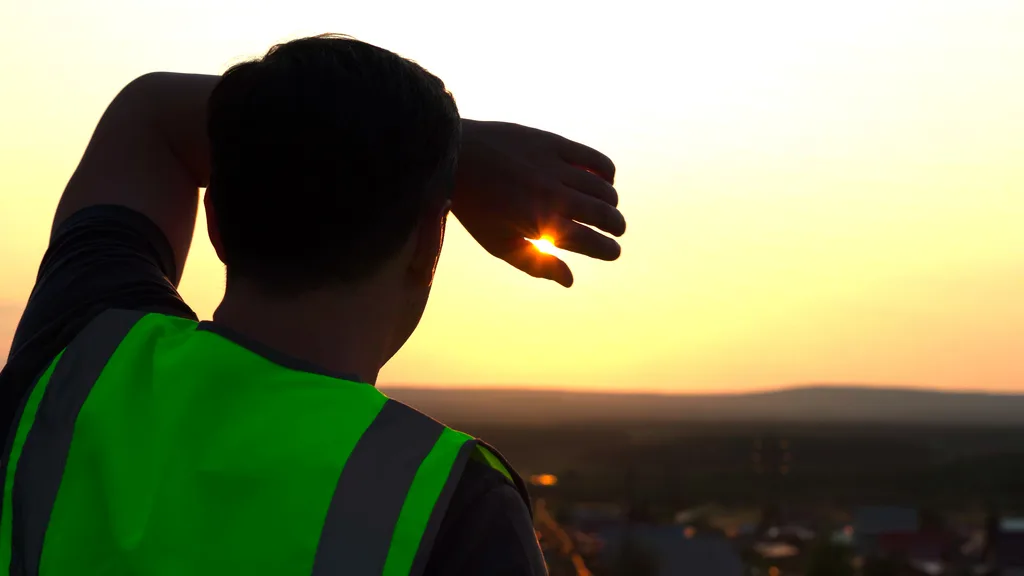Occupational hazards – September 2025
How big an issue is climate change for safety and health professionals in their work? Dr Christopher Davis takes a look.

WHEN I’M posed this question, there are a number of ways to answer it. Firstly – and simply – the places where people work are increasingly susceptible to excessive heat, extreme weather, sun exposure, and the consequences that accompany them.
Secondly, climate hazards, such as floods or heat, are not necessarily new, and OSH professionals will already be managing the risks related to them. Professionals who spend their careers keeping people safe and healthy at work are fluent in the language of risk and are adept at the practice of managing it. Risks created by climate change are therefore something that OSH professionals can and do, with the appropriate support and resource, anticipate and prepare for.
The third answer to the question is around how the profession supports businesses in their drive to be sustainable – both environmentally and socially. We live and work in an age where there are high expectations of businesses in terms of how they look after their people, and our profession plays a key role in meeting those expectations.
IOSH’s new white paper, The heat is on: protecting worker health and safety from the impacts of climate change, delves deeper into this subject. It highlights the main risks for worker health and safety that are posed by climate change, including but by no means limited to extreme temperatures, rises in sea levels and increases in vector-borne and infectious diseases.
Certain groups of workers are at significantly greater risk that others to the effects of climate change. For example, agricultural workers, emergency responders, construction workers, commercial fishermen, transportation workers, and other outdoor workers are clearly vulnerable to hotter and more humid working conditions. But greater numbers are also susceptible less directly, be it indoor workers because of heat and poor ventilation, or workers more generally due to the psychological stress of a changing and unpredictable climate.
It’s crucial that these risks are managed, and it’s time for OSH professionals to lead the way in doing this. In our white paper, we’re encouraging a risk-based, evidence-led, and preventative approach. The first step with this is to identify the hazards, asking and answering key questions like when and where people are working, what the context is of their work and what, therefore, the risks are, taking into account exposure levels and duration.
The next step is to follow the hierarchy of control in responding to the risks identified. So, we’re talking about whether the risks can be eliminated or substituted, and then looking at engineering controls and administrative controls, before considering introducing personal protective equipment.
Ultimately, I think the ways in which OSH professionals can have most influence on managing climate-related risk are through administrative and engineering controls, which may require them to collaborate more, and be more direct with, other organisational stakeholders. Essentially, the way to support workers may involve changes to schedules, different shift patterns, longer breaks, acclimatisation periods and so on. These decisions will require buy-in from others because they change the operating model, so OSH professionals will need to find ways to exert influence.
Our paper goes on to make a number of calls to action for governments, businesses and OSH professionals which, we believe, are measures which can be implemented and steps which can be taken to prevent people from coming to climate-related harm at work.
So, getting back to my question at the start, climate change is a major issue for safety and health professionals. While they can’t stop it, they can play a huge role in protecting workers from being severely impacted by it.
To view the white paper, visit iosh.com/about/what-we-do/white-papers
Dr Christopher Davis is thought leadership manager at the Institution of Occupational Safety and Health. For more information, visit www.iosh.com
HSM publishes a weekly eNewsletter, delivering a carefully chosen selection of the latest stories straight to your inbox.
Subscribe here





